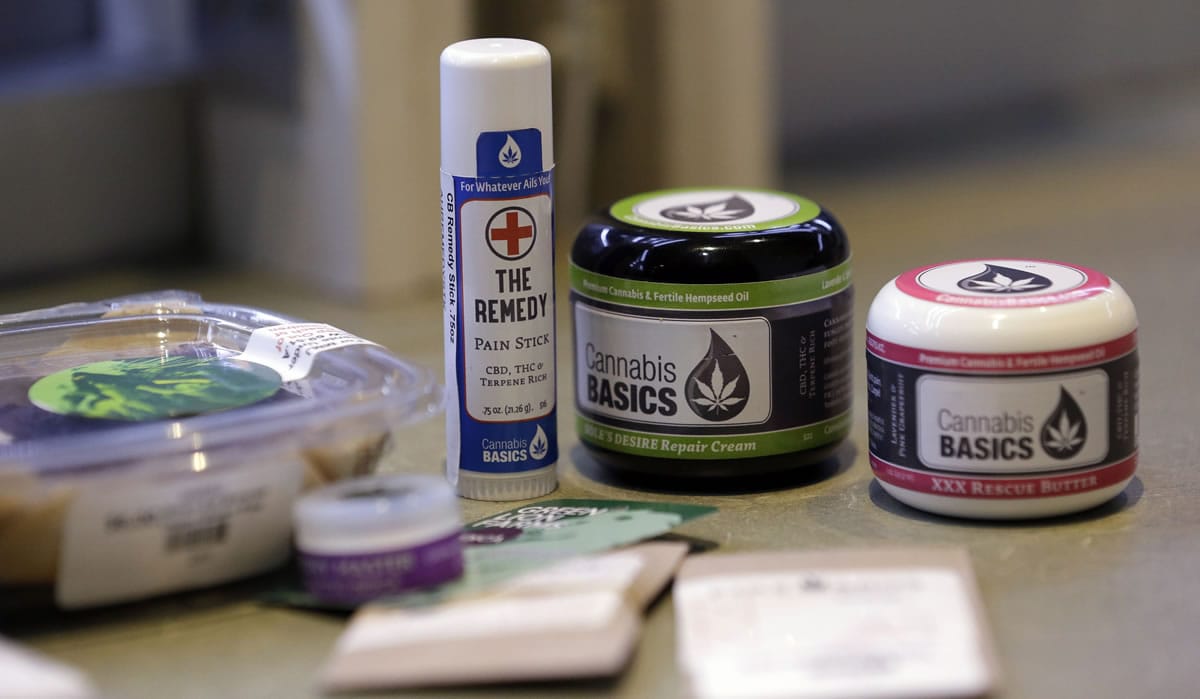SEATTLE — A leading lawmaker has a novel proposal for reining in Washington’s uncontrolled medical marijuana industry: medical pot shops that don’t sell what most people think of as pot.
A bill being filed this week by Sen. Ann Rivers, R-La Center, would create licenses for medical marijuana dispensaries and require product testing that’s at least as strict as what the state requires in its recreational marijuana stores. But the medical stores could sell only edibles and marijuana concentrates, such as oil — no dried bud. The products would be sales-tax-free.
“Recognizing the health concerns relating to smoking marijuana, the legislature intends to prohibit the sale of products that must be smoked at medical marijuana retail outlets,” says a draft of the measure.
Voters approved the medical use of marijuana — although not its commercial sale — in 1998, and in the last few years, the number of legally questionable medical marijuana dispensaries has skyrocketed. Officials worry they’re undermining sales at the state’s heavily taxed, recreational pot stores.
That’s made reconciling the two systems a priority for lawmakers in the upcoming session in Olympia.
Rivers’ bill is one of at least two major proposals. Another, by Sen. Jeanne Kohl-Welles, D-Seattle, contemplates getting rid of medical dispensaries altogether. Instead, any shop that meets requirements could be licensed to sell pot for either purpose, with tax breaks offered on marijuana products targeted toward medical use.
Kohl-Welles would also eliminate collective gardens, allow home growing of up to six plants, and reduce excise taxes on recreational pot — from a 25 percent tax applied up to three times, to a 25 percent tax applied once — in hopes of making state-sanctioned marijuana more competitive with the black market.
But Rivers is in the majority leadership, which could give her Cannabis Patient Protection Act the inside track.
Adding regulations
The bill makes a wide array of changes. Among them: creating a registry of medical marijuana patients and providers, and tightening restrictions on health professionals who authorize medical use. It would have the state Health Department determine what levels of THC, marijuana’s main psychoactive compound, and what ratio of THC to other compounds would be OK for products sold in medical outlets.
It would also strictly limit cooperative gardens. Under current law, such gardens can have up to 10 patients or 45 plants, but there’s no limit on how many cooperative grows are allowed on one property. That loophole has been cited as a reason for the proliferation of medical grows serving hundreds or thousands of patients.
Under Rivers’ bill, cooperative gardens would be limited to four people, one garden per tax parcel. They would have to register their location with the state, and they would not be allowed within 25 miles of a medical marijuana store. Patients or their providers could grow up to six plants at home.
The measure doesn’t specify what health concerns from marijuana smoking would warrant banning medical outlets from selling dried marijuana. Studies by a UCLA medical school researcher, Dr. David Tashkin, found no evidence of a connection between pot smoking and lung cancer or lasting lung damage, though he did say it can cause microscopic injury to the lungs.
“It is quite intuitive that smoking anything would not be good for one’s lungs,” Rivers said in an email. “How can anyone think that that could be a healthy option?”
She said her goal is to harmonize medical marijuana with the tightly regulated market voters wanted when they passed I-502.
The bill was drafted with input from a new industry group of licensed marijuana businesses and applicants, the Washington CannaBusiness Association. The group said it wants to make sure businesses that went through the difficult task of getting licensed under the state’s legal pot law are protected from any unfair competition. Its members include retailers that stand to benefit if medical outlets aren’t allowed to sell dried marijuana.
“This levels the marketplace for all those businesses who have taken steps to participate in the regulated, taxed industry, so that they’re not unfairly burdened,” said association spokeswoman Lynsee Swisher. “It’s important that we have one regulated system with the same background checks and traceability and security and the testing of the product.”
Growers licensed to produce pot for the recreational market would be allowed to expand their operation to add plants for medical use, and if more medical marijuana production is needed, priority in licensing would be given to applicants who haven’t yet been approved for recreational grows.
The measure’s co-sponsor, Sen. Brian Hatfield, D-Raymond, said the state needs “a path to citizenship” for medical marijuana, and the measure would protect the nascent recreational industry already bringing jobs to rural parts of the state.
Hatfield said he expects some pushback, and some medical marijuana advocates were quick to give it.
Muraco Kyashna-tochá, who runs Seattle’s Green Buddha Patient Co-op, called it “silly” to preclude medical retailers from selling dried bud, and John Davis, chairman of the medical marijuana industry group Coalition for Cannabis Standards and Ethics, said it would be a sticking point. Many patients use dried marijuana, which can be smoked or used in a vaporizer, and it’s not clear that medical-only stores would be financially viable if they can’t sell bud, he said.
“There are some good things in Rivers’ bill and some good things in Kohl-Welles’ bill,” Davis said. “I’m hoping we can pick what actually works from both sides.”



